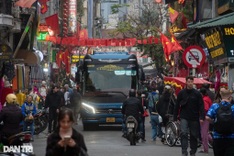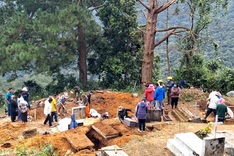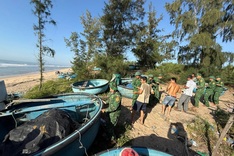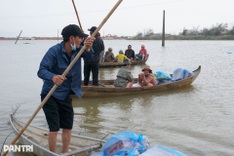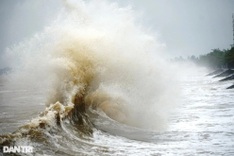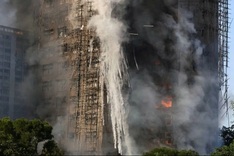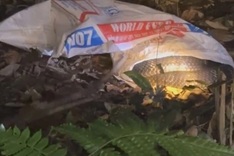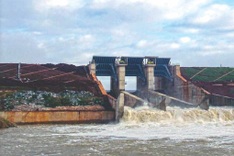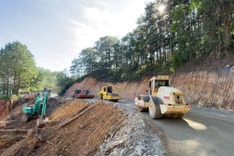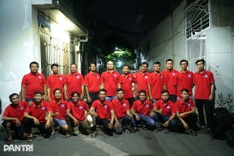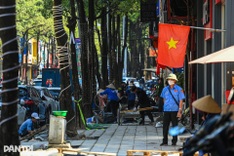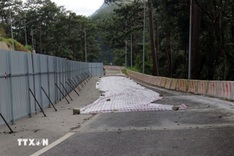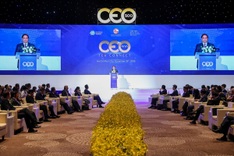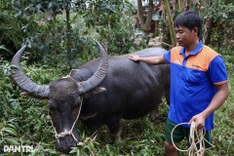Vietnam, the country which has been proud of the great economic achievements it gained in the last 26 years since the doi moi (renovation) initiated by the Communist Party, has been warned about the rising social and environmental challenges, called the “natural resource curse.”
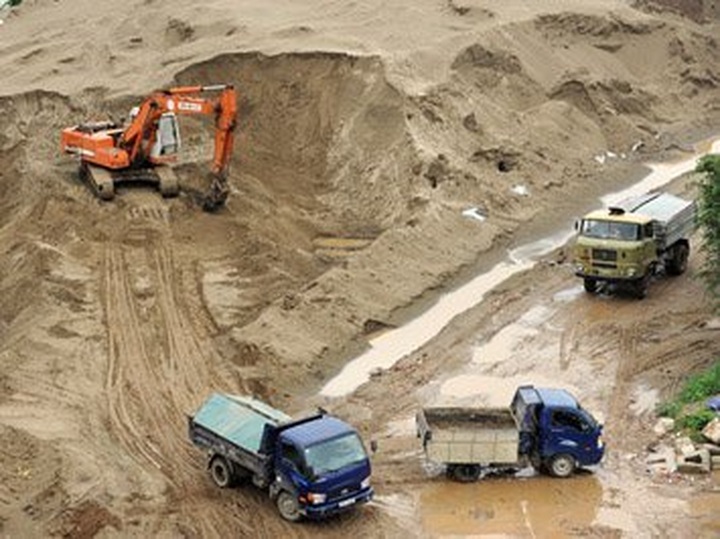
The phrase “natural resource curse” first was used by Richard Auty in his book titled “Sustaining Development in Mineral Economies” published in 1993. The author pointed out that the natural resource-rich nations may not only fail to benefit from the “godsend,” but they may also lag behind the other countries which are not favoured by the nature.
Nigeria has been cited as the typical example of suffering the natural resource curse. The country rich in oil reserves had the oil income per capita at 33 dollars in 1965 and the GDP per capita at USD245. The income per capita then increased to 350 dollars in 2000, while the GDP per capita was nearly the same.
However, the percentage of people living in poverty and hunger (with less than one dollar per day) rose sharply from 36 percent in 1970 to 70 percent in 2000, from 19 million to 40 million people.
Meanwhile, the gap between the rich and the poor incomes has increased rapidly.
In 1970, the income of the upper class which accounted for two percent of the total population was equal to the total income of poor and miserable people accounting for 17 percent. Meanwhile, in 2000, the income of the upper class was equal to that of the poor people accounting for 55 percent of the population.
Oil products brought 80 percent of the total revenue of the country, 95 percent of export turnover and 90 percent of foreign currencies earned. Since Nigeria cannot overcome the natural resource curse, it remains one of the 15 poorest countries in the world.
One year ago, in May 2011, the phrase “natural resource curse” or “mineral curse” was also mentioned at the conference on preventing and fighting corruption in the mining industry in Vietnam--held by Vietnamese government agencies, foreign embassies and international institutions.
The natural resource curse is the “paradox of abundance,” as 1.5 billion people in the world, who bear the poverty with two dollars earned every day, live in the most natural resource-rich countries. Twelve countries, depending on minerals and six relying on oil, have been listed as the poorest countries in the World Bank’s report.
Experts pointed out that the countries which possess many natural resources do not always prosperous nations. In Indonesia, the natural resource rich provinces are the localities with the highest percentages of people living in poverty and social conflicts.
Corruption, mismanagement, overexploitation, natural resource waste have been cited as the basic reasons that cause the paradox of abundance.
Vietnam has been warned about the waste, embezzlement in the natural resource management, exploitation and use.
A survey conducted by the Vietnam Chamber of Commerce and Industry VCCI showed that Vietnam has 60 kinds of minerals situated in 5000 mines. The mining industry has contributed 10-percent to the GDP over the last decade.
In 2009, the revenue from mineral exports reached 8.5 billion dollars, including the 6.2 billion dollars worth of crude oil exports.
Nevertheless, the mismanagement over natural resources has led to the embezzlement and big waste of the resources. VCCI has pointed out that the natural resources have benefited some groups in the society, not the whole community.
It is estimated that some 2000 enterprises from different economic sectors have got involved in the mineral exploitation, 90 percent of which are small and medium businesses. A lot of them do not fulfill financial duties and avoid natural resource tax.

